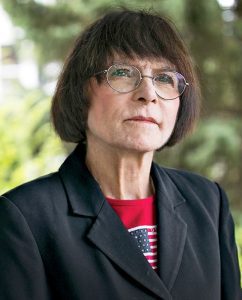
In his remarkable memoir “Quartered Safe Out Here: A Harrowing Tale of World War II,” George MacDonald Fraser shares his experiences in the Burma Campaign as a 19-year-old private in the Border Regiment fighting the Japanese in 1944-45.
In it, he writes about many of the universal experiences of men in combat, noting:
Nobody in his right mind longs for battle or sudden death. But once you’ve trod the wild ways, you can never get them out of your system.
On April 19, 1974, I boarded a “Freedom Bird” heading home. That day, my friends turned out to see me off as I returned to “The World,” as we called the U.S. GIs had performed this ritual many times since the war began. We popped champagne and passed it around, and friends said goodbye. It was all so fast, almost a blur, and then over.
I boarded the “Freedom Bird” aircraft taking us home, stowed my carry-on gear, and strapped in for takeoff. The C-141 aircraft, full of men and women of all ranks and specialties, taxied into position and began the takeoff roll: Udorn, where I had lived, rushed by the windows. The bird broke ground. Like a volcano erupting, a huge cheer roared through the airframe. “Sawadee,” the Thais had said when I left, a word that could mean goodbye and hello, as if we would always be together.
I did not fully understand what always being together meant at the time. Today, I know it is PTSD (Post Traumatic Stress Disorder). Many men and women from Korea, Vietnam, and the Afghanistan-Iraq war eras have experienced PTSD.
While my family probably doesn’t think I have PTSD, I do. To be clear on this, anyone who was in combat experiences some form of PTSD. This condition was called “shell shock” during World War I and “combat fatigue” in World War II. It can include thoughts, memories, distressing dreams, or flashbacks of events. Flashbacks may be so vivid that people relive traumatic experiences. PTSD is a spectrum of reactions ranging from a bit of difficulty adjusting to non-combat or civilian life to severe depression that may lead to suicide.
Many resources are available for those trying to deal with this experience, and it is essential to seek help. One of the most valuable resources is The American Institute of Stress.
 The institute has a connection to Geneva: Dr. Kathy Platoni. A practicing clinical psychologist, Dr. Platoni retired from the U.S. Army with the rank of Colonel in October 2013 and is a graduate of William Smith College (B.S., 1974). As an Army Reserve clinical psychologist, she deployed four times in war and is a survivor of the tragic Ft. Hood Massacre in November 2009. Dr. Platoni works with the military, first responders, and others who served in combat or have experienced other trauma. She is considered one of the leading experts in treating PTSD in the country. Anyone having issues with combat or other trauma should check out the American Institute for Stress, found online at https://www.stress.org/.
The institute has a connection to Geneva: Dr. Kathy Platoni. A practicing clinical psychologist, Dr. Platoni retired from the U.S. Army with the rank of Colonel in October 2013 and is a graduate of William Smith College (B.S., 1974). As an Army Reserve clinical psychologist, she deployed four times in war and is a survivor of the tragic Ft. Hood Massacre in November 2009. Dr. Platoni works with the military, first responders, and others who served in combat or have experienced other trauma. She is considered one of the leading experts in treating PTSD in the country. Anyone having issues with combat or other trauma should check out the American Institute for Stress, found online at https://www.stress.org/.
Time in combat changes one.
For me, it included many things: Honing my flying skills in the F-4, learning to deal with the world of combat, and being away from my wife, which was difficult. It also meant dealing with coming home.
It was hard to leave these men I had gotten to know so well. We ate together, flew together, celebrated together, and shared some amazing experiences in the air. When we finished flying, we shared a few brews — well, maybe more than a few. I never again experienced a bond like the one we forged in combat. I will never forget that time so long ago.
It is true: “… once you’ve trod the wild ways, you can never get them out of your system.”
John E. Norvell is a frequent contributor to the Finger Lakes Times oped section. He is a retired Air Force lieutenant colonel, decorated air combat veteran, and former assistant professor of military history at the Air Force Academy. He has written for The Washington Post, newspapers, and historical journals nationwide. His F-4 flying memoir, “Fighter ‘Gator,” is available on Amazon and other online sites. A 1966 Hobart graduate and a former alumni director at the college, he lives in Canandaigua. He can be reached at [email protected]




